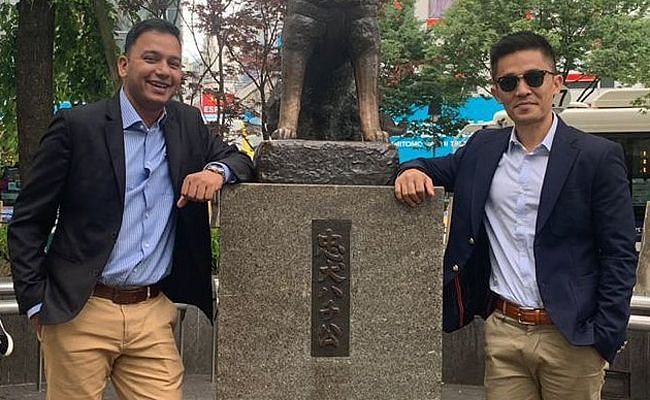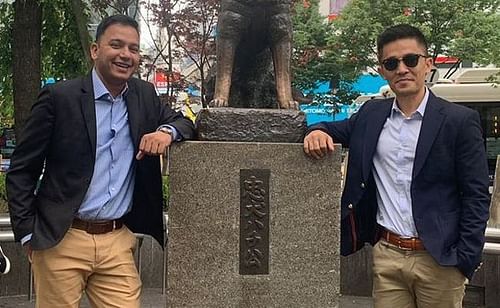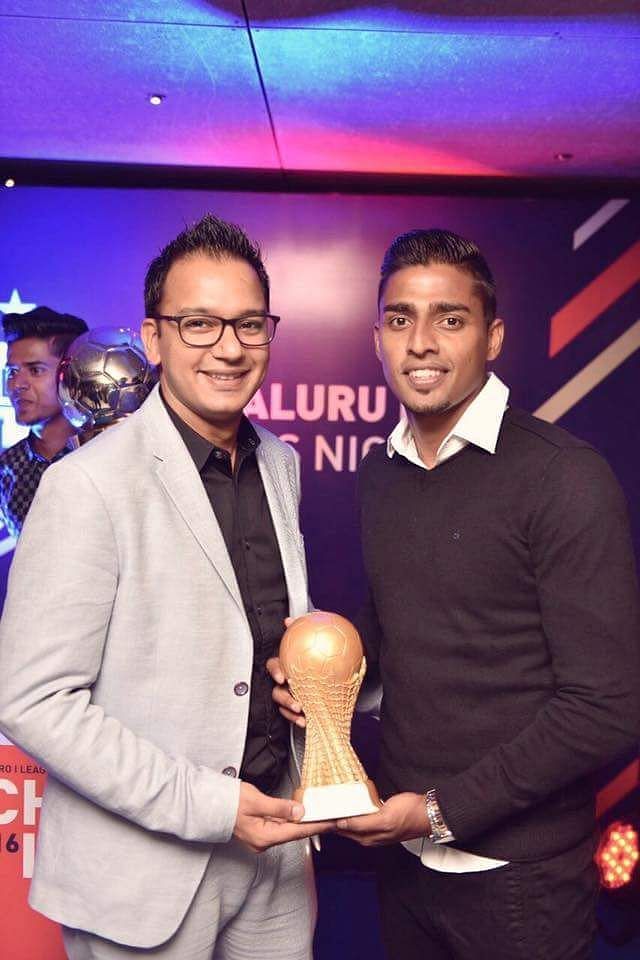
Parallel leagues have increased player employment in India, says football agent Sonu Lamba

Indian Football has come a long way in the last few years. India has had a boom of football clubs in the national pyramid, an abundance of professional players, rise in the television and digital audience, increment in stadium attendance and organization of major football events.
The commercialization of Indian football has allowed the arrival of agency and player management. Indian football now has several player agencies and hundreds of player agents battling hard in the transfer market to get the perfect deal for their clients.
Indian football player agency Four Flags' Director Sonu Lamba spoke exclusively with Sportskeeda about the journey as a player consultant, the evolution of the Indian transfer market, the importance of value judgement, and the impact of the Coronavirus in the transfer market. Excerpts from the Interview:
Q: How did you enter the field of player consultancy and player management? Tell us about your journey to player management.
A: I was in the merchant navy for eight years, from 2005 till 2013, sailing all over the world. In 2013 my daughter Natalya was born, and the moment I held her in my arms I decided I could not go back to the merchant navy, because that would have meant being away for 5-6 months at a time.
However, I still hadn’t figured out what my new career would be. Around the time I was evaluating various options, I happened to be in Goa for a match between Churchill Brothers and Mohun Bagan. The day after the game, I met some players and realized that almost all of them were lacking proper ‘managerial’ support.
A few days after that, I read an article on Jorge Mendes, and something just clicked. I realized that there was an opportunity to be a part of Indian football and at the same time make a living. I am quite gregarious and extroverted, so the transition from an engineer to a football agent was even easier.
Q: Which was the first big deal you cracked?
A: My first ever deal was the transfer of Anwar Ali to Mumbai FC. This is something I will always remember fondly. I will also always be grateful to Anwar for showing faith in me. There were a lot of players who said no to my services, but Anwar trusted that I would do right by him.
Q: What has been the role of the ISL in allowing agencies to crack bigger deals?
A: ISL has definitely made things a lot more professional. When it started [in 2013], neither clubs nor players were comfortable involving agents in the deals, because they hadn’t really been exposed to this concept. However, the state of affairs is different now.
In fact, even in the second division, both clubs and players now want agents/managers to negotiate deals for all involved parties.
Q: How has the transfer market evolved in the past few years in India from the perspective of a player agent?
A: The situation has undergone significant changes in the last five years. The interactions between the players and the clubs have become a lot more professional. Although we have still not reached a stage like the big European leagues, where we keep hearing about massive transfer fees and complicated trades, there have been few big moves in India too.
Another major change that has happened recently is that clubs have started signing players on long-term deals. This should make the transfer marker even more interesting in the future.
Q: There have been instances of agents benefiting from the inexperience of young players. How important do you think is selecting a good agent is for a young player?
A: To be honest, I don’t know if I agree with the first part of this question. Unless one is being outrightly dishonest in the dealing, an agent can’t really benefit off an inexperienced or a younger player.
As an agent, your success is dependent in large part on the performance of your players. Of course, an inexperienced agent may also make mistakes in the negotiations, but hardly any agent would willingly exploit a young player.
Also, one must remember that the footballing fraternity is still small, and fairly close-knit, so a reputation once lost can’t easily be rebuilt. Vis-à-vis the second part, any player should always see the agent’s past record, do his/her own research, and should sign only once any questions or doubts have been satisfactorily answered.
Q: Do you think players are tilted towards big-money deals than first-team playing time? How do you think a proper balance can be achieved when weighing these factors?
This is a challenging position for a lot of the players, since most of them have the confidence in their abilities to be able to make it to the first team. So when a “big” club comes calling, they’re willing to take that chance. Of course, if a player has multiple offers and the difference in money is minor, then we do advise players to pick a club where their position in the playing XI is more secure.
Also, there are times when the reputation of the club is important for the player[s]; with some of them actually taking lower-value deals in order to be part of a particular club.
Q: Do Indian footballers prefer playing in India for more money, rather than playing in Europe and America for less money?
In my opinion, if an opportunity presents itself, then a player should always try playing abroad, at least once in his/her career. Money is not the only consideration. Personally, I don’t know of any player who’s turned down an offer from a good foreign club only because of money. However, one must also be cognizant of the pitfalls, and should check the fine print before signing on the dotted line.

Q: Can a player have multiple agents? What does an agency do other than cracking transfer deals?
No. Each player has only one, exclusive agent. Players can choose to work with other organizations for things like PR or marketing, but the negotiations with clubs have to be done through a sole, authorized representative.
In terms of the job description, it’s both undefined and endless. For example, my agency is geared towards being a one-stop solution for my players. Other than their fitness and football practice, we help and/or take care of everything else – this includes investment advice, social media assistance, travel assistance and even advice on which car to buy!
Q: The parallel running of the ISL and I-League have created a huge player pool for India. Do you think parallel leagues have affected the net salaries of the players?
A: Like most people, I would prefer one league with 20 teams, with a much longer duration. However, it’s correct to say that the parallel running of both leagues has created a lot of opportunities for players to support themselves as professional footballers. The salaries are not so dependent on the two leagues, however – it’s more about the player’s performances.'
Q: How does a player agency work? Do players pay agents to manage their deals, or agents get their share of the sum depending on the contracts?
A: It varies from player to player. Each agreement is unique.
Q: What has been the effect of the COVID-19 pandemic on player transfers and existing contracts with the clubs?
A: Honestly, the effect has varied quite widely, depending on the club and the player. A lot of the players locked into long-term contract only had their payments deferred. But players without contracts were affected, as teams wanted to cut expenses in the near future. So some new signings have had to agree to lower values than they were expecting.
Q: Who are your top 5 clients?
A: All of them! It’s liking asking someone to pick their favorite child.
Q: Are you looking to represent foreign players in India as well?
A: Yes, and hopefully soon. But at the same time, we have a reputation to protect, and hence only want to work with quality players at reasonable prices.
Q: What do you think is the future of player consultancy and management in India?
A: The quality of Indian football is improving, the fan-base is increasing, the popularity of the players amongst the general public is on the rise [just look at Sunil Chhetri]. So everything is moving in the right direction, and the future is bright.